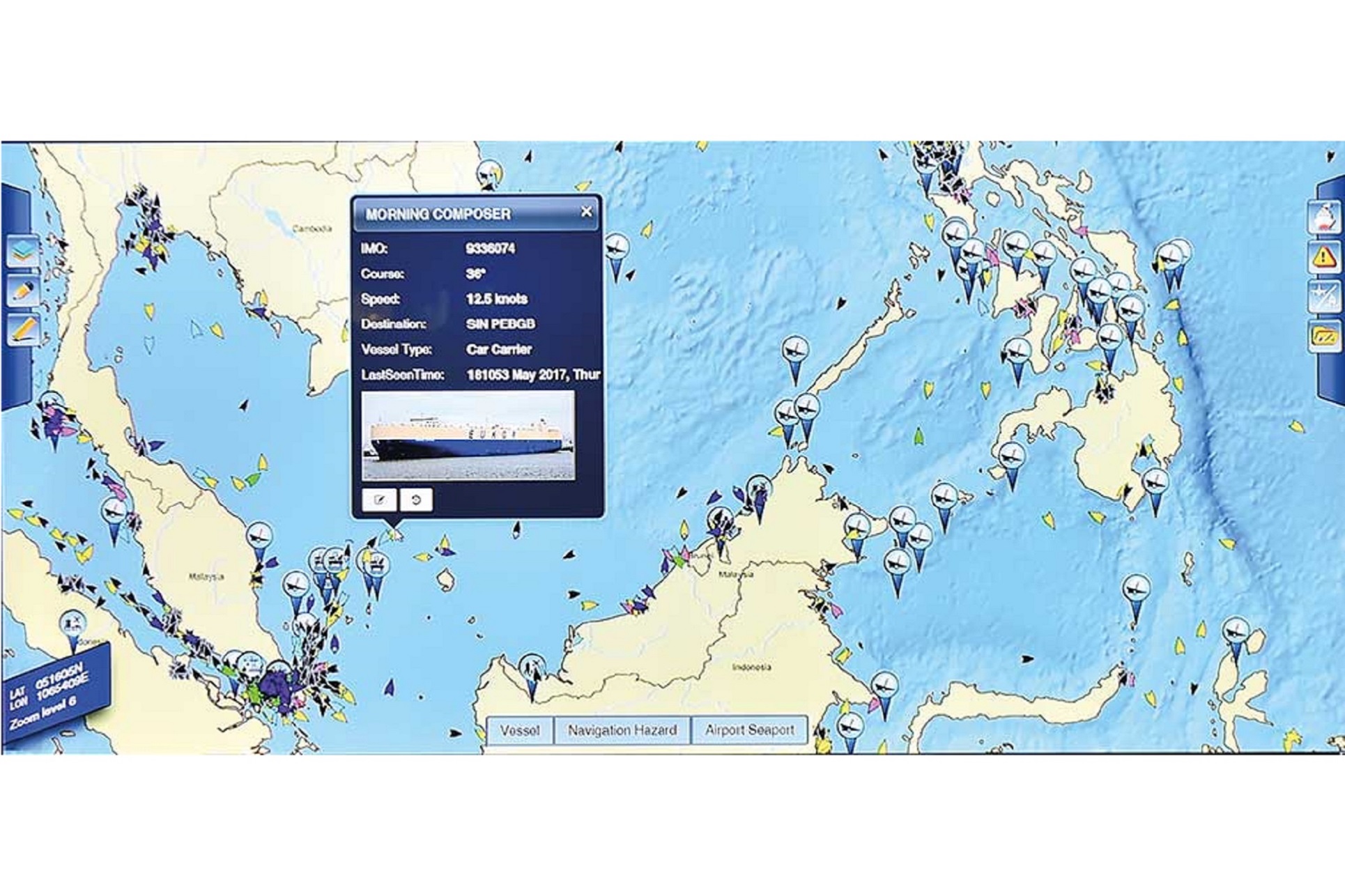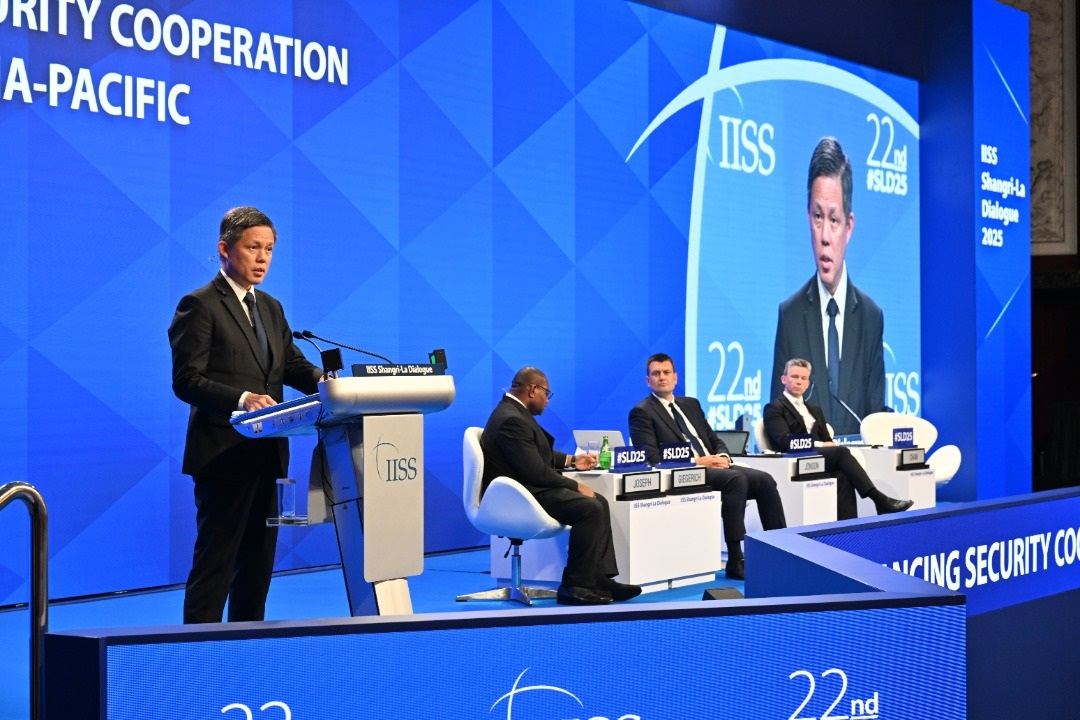DIPLOMACY
TI(D)ES THAT BIND
01 Jul 2017
Cooperation, open dialogue and a rules-based order continue to be key in keeping seas safe and open, as Asia-Pacific navy chiefs meet at the region's largest maritime defence exhibition.
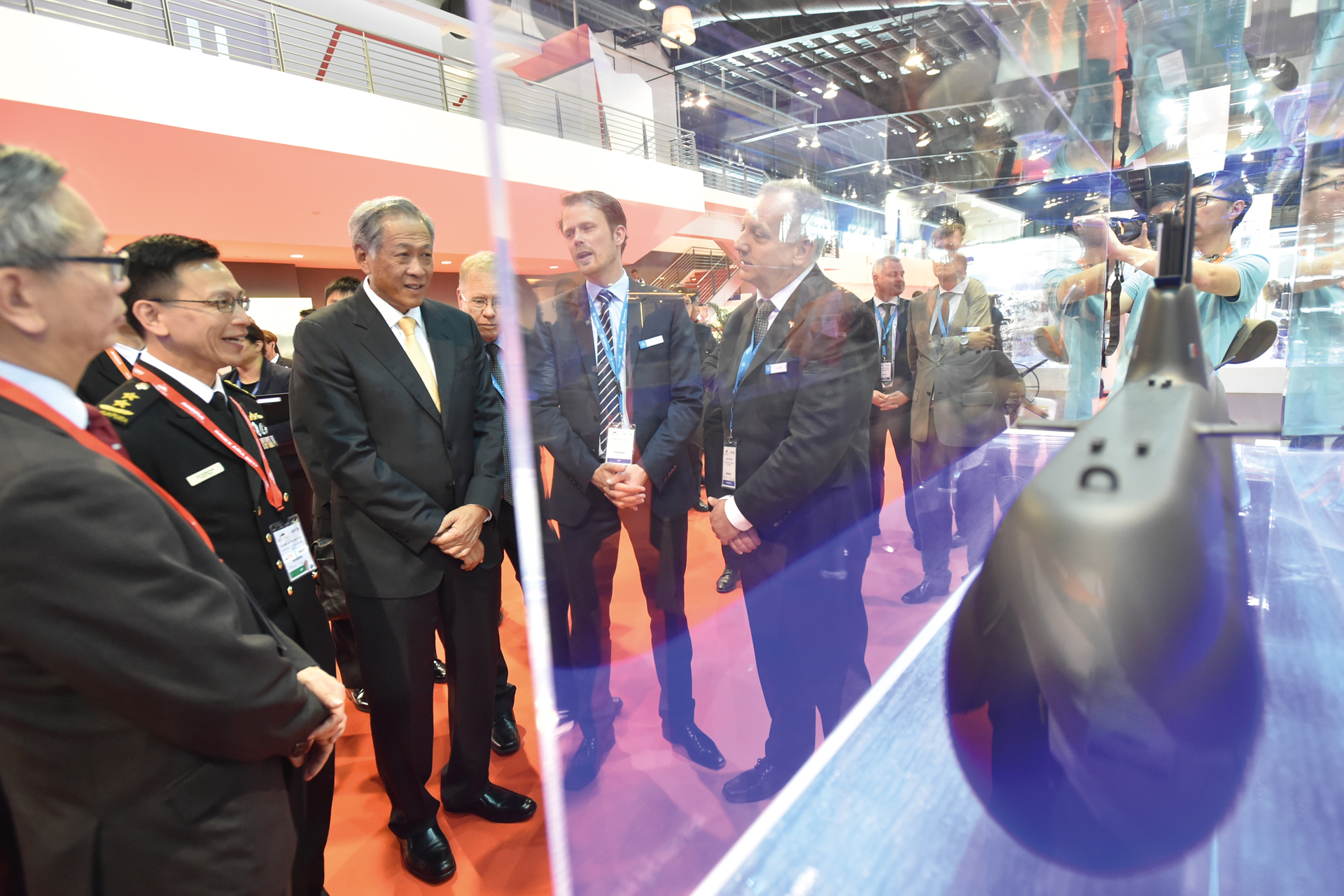
The sea is a lifeline that not only connects trade routes but also ties nations together through a shared history. Thus all stakeholders have a role to play in keeping sea lines of communication open and safe through dialogue, cooperation and establishing a rules-based order.
This was the central theme of the 11th International Maritime Defence Exhibition and Conference (IMDEX) Asia, Asia-Pacific's largest maritime defence exhibition.
Held at the Changi Exhibition Centre from 16 to 18 May, the event was attended by about 30 navy chiefs, vice navy chiefs, and directors-general of coast guards, and about 40 flag rank officers from 44 nations, as well as 28 foreign warships from 20 countries for the IMDEX Asia Warships Display.
At the opening of the three-day conference, Defence Minister Dr Ng Eng Hen urged all those present to work together to keep the regional waters safe and open: "To maintain these virtuous conditions of freedom of navigation and growing trade, we must be able to find common ground to strengthen maritime security through constructive dialogues, cooperation, practical solutions, and common rules in dealing with the security challenges that we face."
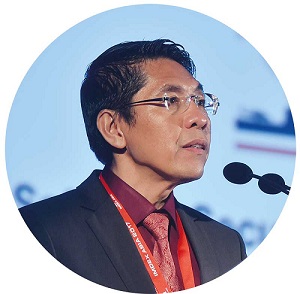
Working together for safer seas
"Building trust is a key foundation for effective cooperation. Without trust, promises of cooperation would merely be superficial lip service," Senior Minister of State for Defence Dr Mohamad Maliki Bin Osman reiterated at the opening of the Fifth International Maritime Security Conference (IMSC) on 16 May.
Dr Maliki noted that regional platforms such as the Shangri-La Dialogue and ASEAN Defence Ministers' Meeting-Plus were important in opening up discussion channels to "facilitate open and inclusive dialogue".
The co-location of International Liaison Officers (ILOs) in the Information Fusion Centre (IFC) -- which is hosted by the RSN at the Changi Command and Control Centre -- has also helped to foster trust in maritime information-sharing among nations.
In early May last year, the Indonesian Navy (TNI-AL) successfully thwarted a hijack attempt through its ILO. Oil tanker Hai Soon 12 was hijacked by suspected pirates while making its way to the Southern Ocean from Singapore via the Sunda Straits. Cued by information from the IFC, the ILO was able to assist the TNI-AL in the swift rescue of the ship.
Trust can be further deepened with greater practical cooperation such as conducting maritime exercises, Dr Maliki added. "With our ships on the ground, navies and coast guards are in prime position to work together and enhance our interoperability."
Advancing our technology
In order to stay ahead amid an uncertain security environment, defence planners also need to adapt to advances in technology. This was emphasised by then-Permanent Secretary (Defence Development) Ng Chee Khern who spoke at the Third International Naval Engineering Conference on 17 May.
Mr Ng outlined several approaches to exploit Fourth Industrial Revolution (Fourth IR) technologies -- a trend characterised by the fusion of technologies that blur the lines between physical, digital and biological spaces. The Fourth IR includes advancements in fields such as data science, artificial intelligence and robotics.
One of the proposed approaches was to latch on to expertise in the commercial sector to co-develop solutions in non-sensitive areas.
With access to the NEHR database from their workstations, SAF medical personnel can pull up a serviceman's relevant medical history and records. Likewise, information entered into PACES will be shared with NEHR so that doctors in polyclinics and public hospitals have the latest medical treatment history and are able to better care for the servicemen.
With access to the NEHR database from their workstations, SAF medical personnel can pull up a serviceman's relevant medical history and records. Likewise, information entered into PACES will be shared with NEHR so that doctors in polyclinics and public hospitals have the latest medical treatment history and are able to better care for the servicemen.
Safer waters below
To provide submarine operating centres and submarines at sea with real-time tracking of hazards to prevent underwater accidents, the RSN launched the Submarine Safety Information Portal (SSIP) on 18 May.
A first in Asia-Pacific, the portal will tap open-source information tracked by the IFC, such as the movement of fishing vessels, oil rigs and deep draft vessels. In addition, it will collate data unique to underwater operations like seismic activity and underwater hazard areas such as places where anti-submarine warfare exercises may be taking place.
The SSIP can also assist in submarine rescue operations by showing the real-time location of vessels so that the closest and most suitable ones can be despatched.
Colonel David Foo, Commanding Officer of 171 Squadron which operates submarines, called on countries to enrich the SSIP with information relevant to the submarine community: "There are opportunities for countries to collaborate, because they may have info such as the location of fishing vessels. So we hope that countries can open up and share some of this non-sensitive info."
ALSO READ IN DIPLOMACY
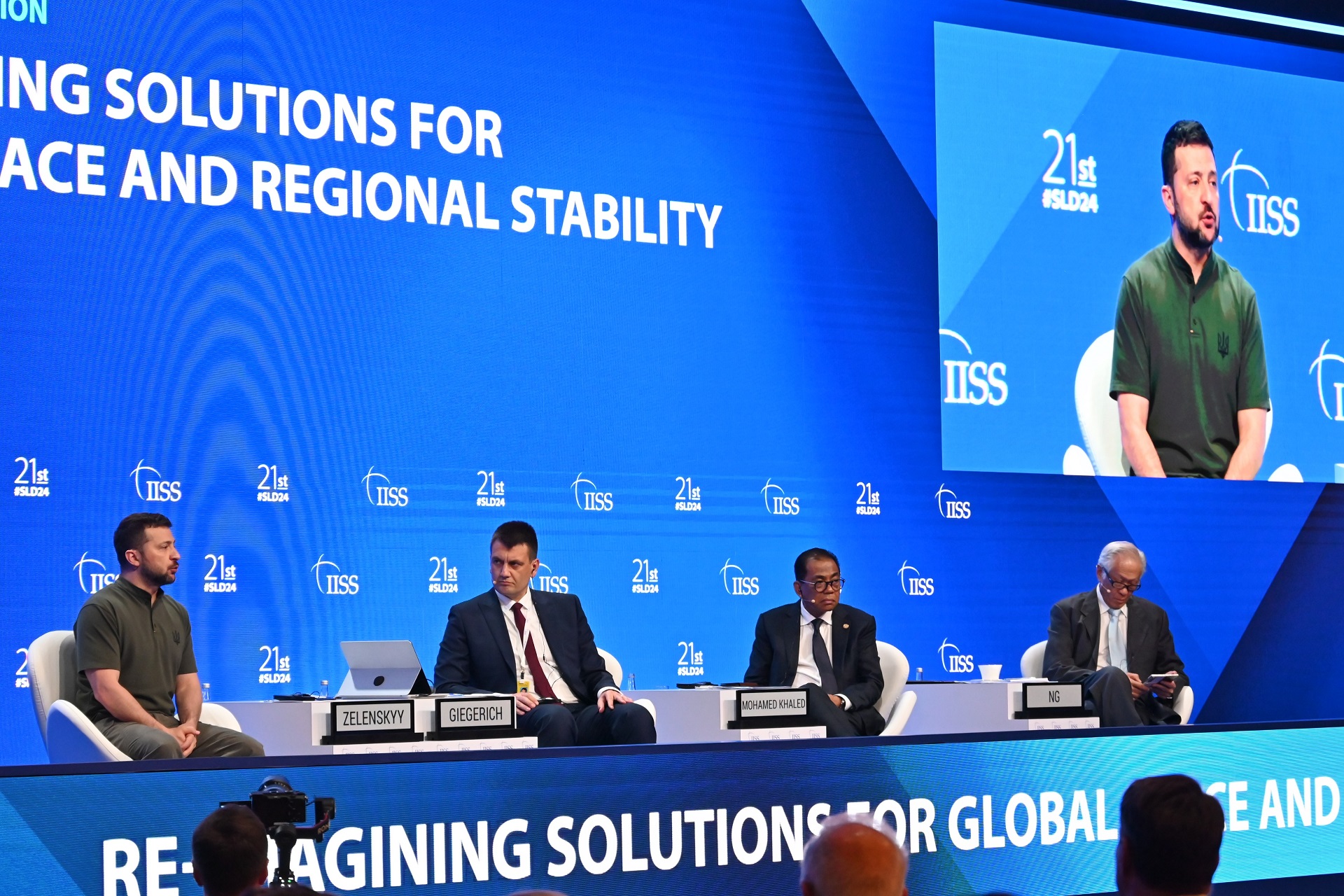
A call for peace at Shangri La Dialogue
02 Jun 2024
A repeated call for peace, especially in Asia. This was Minister for Defence Dr Ng Eng Hen's central message at the 21st Shangri La Dialogue (SLD), held from 31 May to 2 Jun.
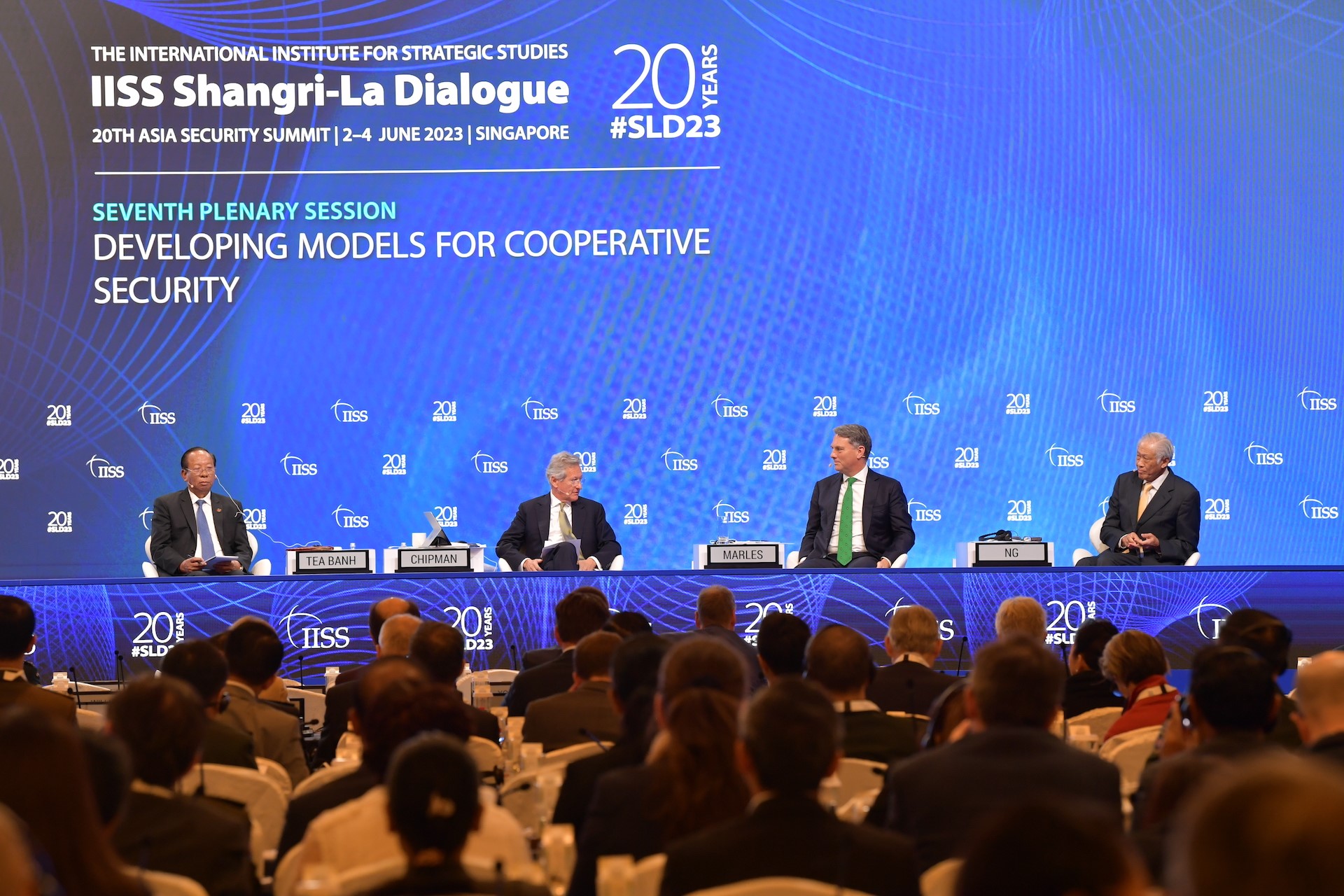
Shangri-La Dialogue sees frank discussion of security issues
04 Jun 2023
The 20th Shangri-La Dialogue, held from 2 to 4 Jun, saw ministers from around the world meet in Singapore to discuss key defence and security issues.
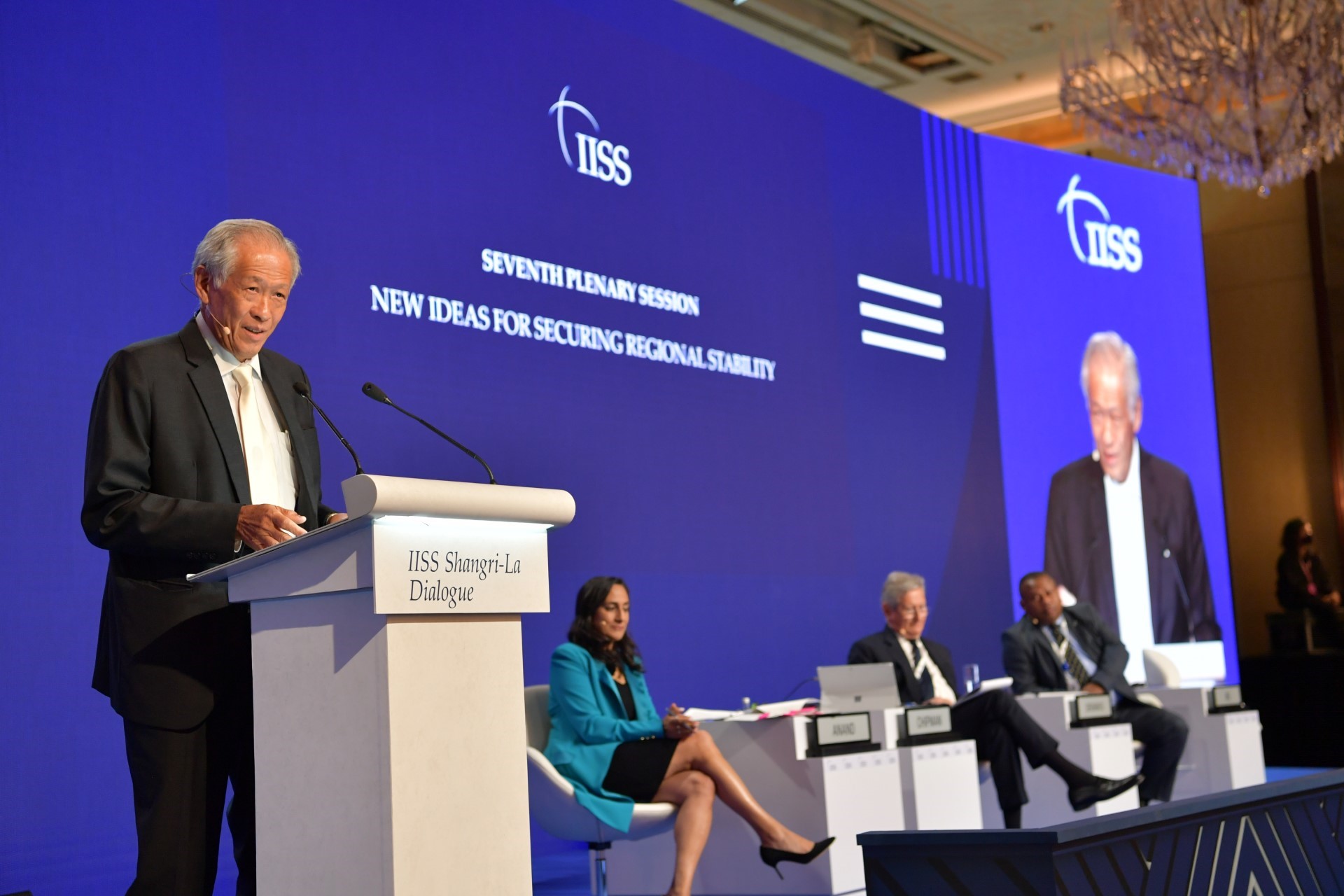
SLD remains valuable platform for crucial discussions: Dr Ng
12 Jun 2022
Minister for Defence Dr Ng Eng Hen spoke on the US-China relationship, the importance of a rules-based order and the role of ASEAN as a regional security platform at the 19th Shangri-La Dialogue (SLD).

